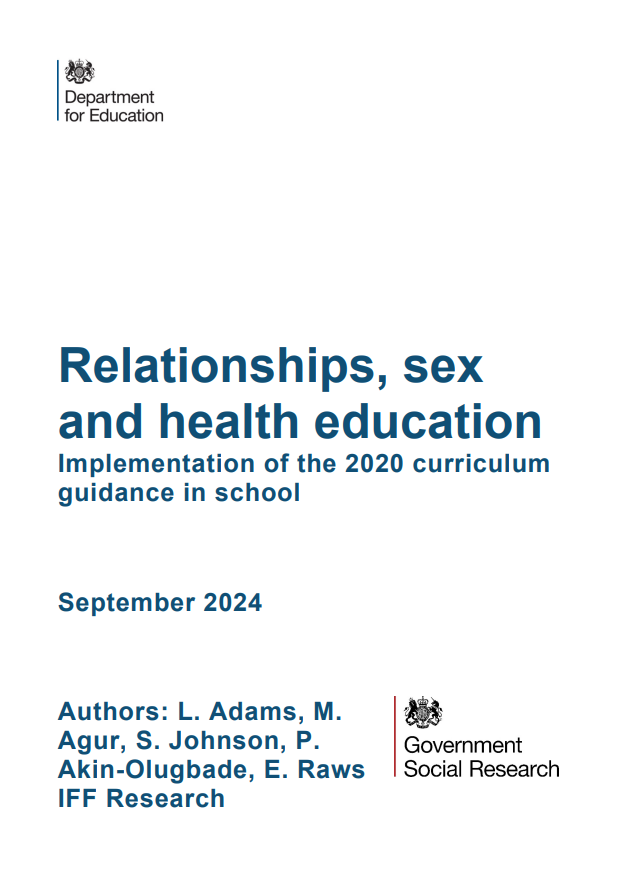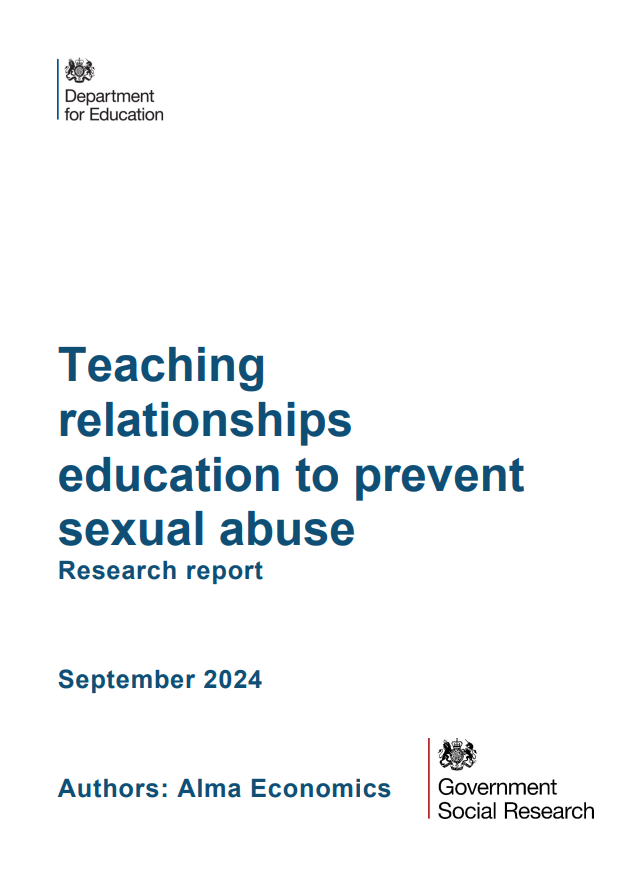New Relationships Education Research from the DfE
Tuesday 8th October 2024
The DfE have published two new research documents:
Relationships, sex and health education: Implementation of the 2020 curriculum guidance in school
The key findings of the research suggest that schools have engaged with and implemented the new curriculum using a range of different approaches, adapting the guidance flexibly to the context of their school.
So, while the findings suggest that the schools have engaged with the guidance issued by DfE and delivered the new curriculum, they may not have been doing this in the way that was assumed by DfE.
The findings from the research suggest that nonetheless, the implementation of the new curriculum appeared to have been successful in terms of leaders’ and teachers’ satisfaction and confidence in delivering the new curriculum.
However, further research may be required to gain a better understanding of how effective the different approaches used by schools were, the barriers that schools were still facing, and possible solutions to address them.
Teaching relationships education to prevent sexual abuse: Research report
This project builds on the findings of Ofsted’s 2021 Review of sexual abuse in schools and colleges. The Ofsted review commented on how prevalent sexual harassment and online sexual abuse have become for children and young people: “It is concerning that for some children, incidents are so commonplace that they see no point in reporting them.”
The report went on to recommend the need for: “[A] carefully sequenced RSHE curriculum, based on the Department for Education’s (DfE’s) statutory guidance, that specifically includes sexual harassment and sexual violence, including online. This should include time for open discussion of topics that children and young people tell us they find particularly difficult, such as consent and the sending of ‘nudes.’” - Ofsted
Following the publication of revised statutory guidance for relationships, sex and health education, the DfE is looking to provide further support for schools in teaching about sexual harassment, sexual violence, and violence against women and girls.
The primary aim of this project was to conduct a review of evidence to inform further support for schools and to ensure that this support is based on the best possible evidence, particularly of best practice.
Consolidated list of recommendations
- RSE is most effective when begun early
- The RSE curriculum should support young people to build and maintain positive, healthy relationships and cover a broad range of topics underpinning relationships nowadays
- Teaching staff should receive training on all aspects of RSE, equipping them with good understanding of RSE curriculum and pedagogy, and additional confidence
- RSE design should include pupil consultation, and young people’s voices need to be at the centre of curriculum design
- The curriculum should incorporate education that builds on previous lessons and has a longer duration
- A whole-school approach should be adopted by schools to enhance learning, as well as support for pupils
- The RSE curriculum and delivery should be inclusive, particularly in relation to LGBTQ+ issues and needs of children with SEND
- Teaching about permission, privacy and boundaries should be introduced in early years
- Teaching consent should be subsequent to exploring and challenging gendered expectations and their sources
- The RSE curriculum should teach young people to actively seek consent
- Lessons about consent should include specific examples of situations that pupils can relate to
- Examples about consent should promote equality, diversity and inclusion
- RSE should deconstruct harmful gender stereotypes and tackle generalised cultures of harassment and normalisation
- RSE should promote empathy and emotional literacy
- RSE should include teaching about pornography
- RSE should teach students to appreciate and respect diversity
- Teaching should avoid fear, guilt and shame, and be culturally responsive
- Teaching practices should consider the broader context in which young people live



